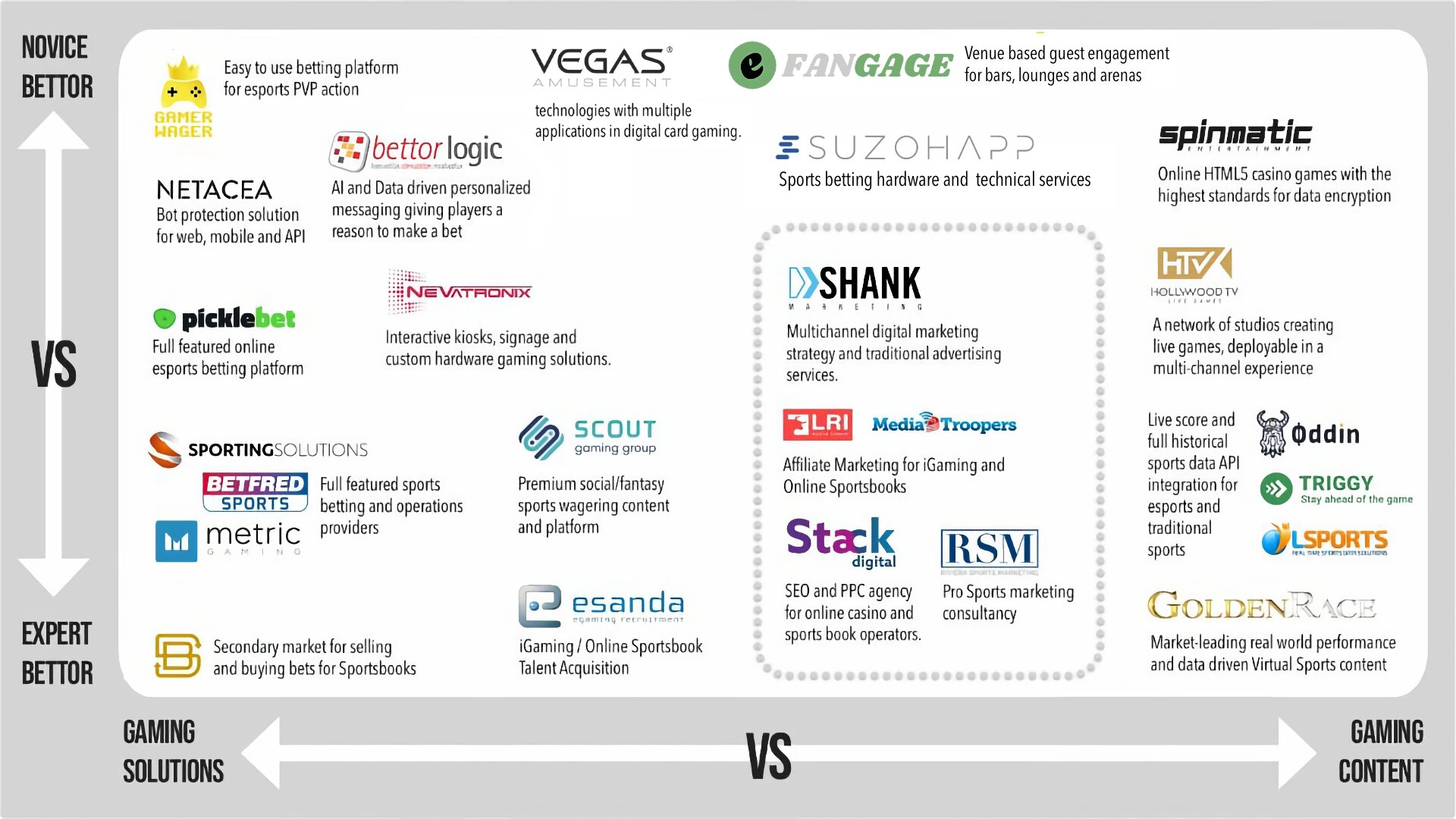
Volume 44 | June 10, 2021

WEEKLY EDITION
June 10, 2021

5 Best Practices For Successful Activations

There’s no denying the importance of in-person customer engagement when it comes to creating a meaningful brand relationship—one that will last and ultimately deliver revenues for your company. Even in a world where digital campaigns abound, and in some cases, dominate a brand’s marketing strategy, there is a place and need for “activation” marketing.
Like digital marketing, when done right, activations can zero in on your target audience and provide quantifiable results that help you calculate the program CPA. With this information, you can “test and learn,” thus, over time, creating the most impactful program.
But not activations are created equal! Below are our “best practices” for maximum engagement and optimal results.
#1 ESTABLISH GOALS AND MEASURE RESULTS
Without outlining goals for your activation, it’s like you’re operating a boat without a rudder. Depending on your brand, you may be focused on brand-building or hardcore acquisition. Regardless of the goal, determine the action that you want your target customers to take and use technology that will enable you to collect data and effectively track results easily. With these steps in place, you will gain insight that you can incorporate into your sales pitches and promotional offerings.
#2 FOLLOW YOUR CUSTOMERS
It’s essential to match the demographics and psychographics of your target customer to the potential activation opportunities. Just because an event or location may have many people, it doesn’t mean they are interested in your brand. Think as your target customers think. Activate at the “right” places, and you will realize the best results.
#3 DESIGN AN EYE-CATCHING SPACE
It can be challenging to engage with target customers in loud, busy locations. Therefore create a graphically attractive space, exudes energy, and builds enough curiosity for passersby to stop. Depending on the space parameters, backdrops and pop-up banner stands with large images and bold colors can do the trick. Distributing branded promotional products is also effective in getting your name and logo into the hands of target customers; they also act as good reminders that may encourage future purchases.
#4 OFFER A SPECIAL PROMOTION
Once you have successfully attracted an audience to your space, use a special promotional offer to encourage them to take action. If you’re able to make it the “best in the market,” that’s even better. Everyone likes a deal. Using this approach will instill a sense of urgency, leading to better onsite results.
#5 TRAIN YOUR STAFF
You can produce a graphically pleasing space, but your activation won’t deliver if you don’t have engaging, well-trained staff. Hire brand ambassadors that fit your brand and understand the importance of following the appropriate activation protocols. More importantly, train them in advance on your brand, precisely the promotional offers and what makes your product stand out from the competition. With this information, they will be ready to accurately and effectively engage, delivering the best results for your company.
In short, if your company is allocating a budget for activations, take the time to consider the necessary variables that will help you realize the most success.
SCCG Client Partners



SCCG Contributing Writer
Why Bet Offshore?
As it stands, just 27% of the U.S. population has access to legal online sports betting. Even fewer have legal access to iGaming. As gambling legislation makes its inevitable way around the country and more states adopt legal gaming laws & regulations, you would expect gamblers to turn to these regulated markets for a legitimate and legal betting option instead of the alternative offshore options that exist online today. According to DraftKings’ CEO, Jason Robbins, one of their biggest challenges moving forward is to convert these offshore bettors to US-Based sportsbooks.
Is Offshore Betting Legal?
Offshore betting is technically illegal because a United States regulatory body does not oversee them. However, illegality has not stopped gamblers from placing millions of bets with offshore companies, such as 5Dimes, Bovada, and Mybookie. The American Gaming Association estimates that over $150 billion is illegally wagered each year. This bet volume indicates that offshore players may be the most valuable players of all, so it makes sense that the big players in the legal U.S. sports betting market would want to acquire these offshore bettors. These sites are sometimes loosely regulated by foreign countries, but there are little to no regulations for offshore books for the most part.
Converting Bettors is Harder Than You May Think
Since the U.S. Supreme Court struck down PAPSA in 2018, an alarmingly low number of offshore bettors have switched over to a legal alternative yet. As Jason Robbins sees it, the big underlying reason these customers haven’t been converted yet is due to the concept of “stickiness.” When people are comfortable with a particular brand or product, they tend to remain using this brand or product until they find a better or more personally attractive alternative. Being the first to market is a huge factor, and before 2018, offshore sites were the only way to place bets in the U.S. unless you had an actual bookie, which is also not legal.
Disadvantages of Betting Offshore
There are quite a few disadvantages to placing your bets with an offshore sportsbook. The first and by far the most important is the lack of regulation. It is not a 100% guarantee that you will receive your winnings from a bet placed with an offshore website. The sportsbooks run inside the United States jurisdiction are much safer, as they must adhere to strict requirements that are put in place to protect customers. Another glaring disadvantage is the complex nature of depositing and withdrawing your money. Often, offshore sites force bettors to jump through several hoops to make a deposit or a withdrawal since one usually has to revert to a method that is non-reliant on a traditional bank.
How to Convert Offshore Players to US-Based Sportsbooks
Given this concept of ‘stickiness,’ how does a big player in the new U.S. sports betting landscape capture the business of an offshore whale? One way to do this is by offering generous, unmatched promotions. These promotions should be heavily incentivized, so much that a player is swayed from their preferred offshore service, with hopes that they will continue to do business with you once they claim and play through their bonus. Another general practice would be to optimize the user experience. A big knock on offshore sites is that their user interface leaves much to be desired. During my time as a customer service associate, I have found that bettors appreciate a well-designed and well-maintained product. It is easier to retain a happy customer, and a top-notch product leads to this category. One final way to sway these offshore bettors would be to emphasize education. While offshore gaming has long been a gray area of the law, the recent sweep of pro-gaming legislation means that many U.S. citizens will have legal access to sports betting that they did not have before. While this industry is still relatively brand new to the states, it will be increasingly important to educate players on the downsides of offshore gaming and its legal implications.
Will Offshore Gambling Survive in the United States?
As more and more states begin to embrace a legal gambling environment, it will be difficult for offshore books to retain their customers when a legal gaming option is available. Regulated sports gambling will always be a superior option due to its strict regulatory measures (which are incredibly beneficial to its players), vast array of payment options, and overall better user experience. Offshore betting will always exist in some capacity, but as far as the United States is concerned, it looks more and more like offshore books will become one of the last resorts for someone looking to place a wager.

WELCOME TO YOUR ROUNDUP OF EUROPEAN IGAMING NEWS

Our weekly US-UK focused iGaming feature article summarizes the thoughts of Jake Pollard, an experienced journalist and editor who has covered the online gaming and betting industry for many years. He has written for the leading media outlets as well as operators and suppliers in the igaming space. His areas of focus are wide-ranging and include regulatory developments in the US, emerging markets in South America and how European countries are adapting to a decade of igaming regulation.
Two major digital conferences took place this week: SBC Digital North America and iGaming Next Bright Future, here are some highlights.
CPA comments part of major affiliate competition
The fact that CPA rather than revenue share is the preferred busines model for the leading affiliates in the U.S. is no surprise. Speaking at the Affiliate Leaders panel during the SBC Digital event, Catena Media boss Michael Daly said the model was cash generative and enabled Catena to reinvest and develop its products and markets with immediate effect. Max Bischel of Gambling.comconcurred with Daly, but both said the industry would likely move to revenue share once things had settled down. Daly’s comments however should also be seen within the broader context of Catena’s rivalry with Better Collective, which will be moving towards more revenue share activity and paid media.
Where does content responsibility lie?
The closing panel of the iGaming Next conference featured Chris Harrison, iGaming industry lead at Google. When asked how Google, as Youtube’s parent company, viewed the hours of slots streaming published and whether it was in danger of breaching responsible gambling guidelines with its hours of continuous play and celebration of big wins, Harrison swerved the question and put the onus on the operators. “YouTube allows people to explore their passions. Whether we choose to allow monetization of that content is a different conversation.” He added that it was up to operators to control the different streaming channels and “get comfortable with the regulation in whatever country they are in.”
Operators should pay out, not credit
Steve Ruddock ran an excellent column about sportsbooks paying out winning bets as site credits rather than a “bona fide winning bet”. Ruddock wrote that the practice was storing up “a hornet’s nest of problems” because it forces bettors to place more wagers. This can cause problems further down the line because players who win can choose what to do with the winnings. Credits take that option away and basically mean players have to place bets to claim the bonus. It can also lead to bettors thinking they have won more often than they really have and potentially this can lead “to increased betting activity, riskier betting behaviors, or both. That is particularly true with new bettors and will have an even more significant impact if the bets have long odds.” Ruddock’s reasoning makes sense and picks up on a key responsible gambling issue: how operators must get the balance right between encouraging wagers or risk being accused of misleading advertising by critics.
SCCG Management: New and Upcoming Events

LSports Team in Las Vegas
The LSports leadership team will be in Las Vegas this month, from the 20th to the 24th of June, to catch up on current developments with their partnership with the AUDL, and AFFL, and the state of sports data feeds in the US. If you are interested in discussing these topics, please contact us directly.

Las Vegas, NV, United States – June 3, 2021 / sccgmanagement.com / — Stephen Crystal of SCCG Management announced the addition of Randall Sayre, Retired Brigadier General and former member of the Nevada Gaming Control Board, to its leadership team.

Las Vegas, NV, United States – May 27, 2021 / sccgmanagement.com / — Stephen Crystal of SCCG Management announces its partnership with On the Avenue Marketing, supporting its “best-in-class” on-site event services for lead generation, new user acquisition, and product sales to the US igaming industry.
Said Crystal, “On-site engagement could prove to be one of the most effective forms of affiliate marketing, in addition to its digital components. We felt that it was important to search for the company with the best practices for in-venue marketing.”
On the Avenue Marketing is a full-service event-based sales and marketing agency that provides top-notch brand activation programs focusing on customer acquisition. With 17+ years of experience creating and scaling programs for Fortune 500 companies, the agency is committed to excellence and believes that the value of in-person, one-on-one customer engagements is undeniable when designed and executed correctly.
Patty Sins, Founder and President of On the Avenue Marketing, said of the announcement, “OTAM is excited to partner with SCCG, a company that demonstrates daily its true passion and commitment to the world of gaming. We look forward to combining our unique skills to create innovative partnerships that deliver value and revenue for gaming brands”.
ABOUT SCCG MANAGEMENT
SCCG Management is a consultancy that specializes in sports betting, iGaming, sports marketing, affiliate marketing, technology, intellectual property protection, product commercialization, esports, capital formation, M&A, joint ventures, casino management, and governmental and legal affairs for the casino and iGaming industry.
ABOUT ON THE AVENUE MARKETING
On the Avenue Marketing Group (OTA) is a sales and marketing firm that utilizes events to market and sell products to consumers. On behalf of our clients, we attend thousands of fairs, festivals, expos, concerts, conferences, and sporting events annually, helping them reach millions of individuals nationwide. With a proven track record, OTA has demonstrated its unique ability to develop and successfully execute customized event programs for businesses of any size, including prominent Fortune 500 companies.

SCCG Management curates a feed of news articles from over one hundred of the best industry news sources.
Keep up to date on the items in the news that interest and excite us!







